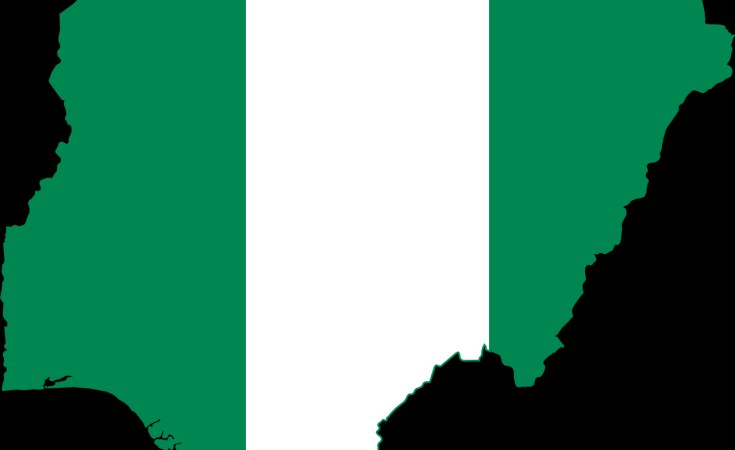A year into his administration, Nigeria's President Bola Ahmed Tinubu signed the National Anthem Bill into law, replacing an anthem adopted in 1978 with its predecessor. The decision generated debate among Nigerians, some of whom felt it did not rank on the list of social, economic and security challenges confronting the country. Samuel Oyewole, a political scientist, says it is a "distract and rule" tactic, which he described in his published research as serving the political elite's goal of a democracy in name only and promoting a democratic setup where people's involvement in governance is not respected.
The recent change to Nigeria's national anthem was rushed through the legislature. What does that say about Nigerian politics?
While the majority of Nigerians are preoccupied with how to make ends meet, their representatives in Abuja prioritised changing the national anthem, and without any public hearing (participation).
The first and second reading of the bill at the floor of the Senate was on 23 May and it was passed on 28 May and signed by the president the next day.
In the House of Representatives, the bill passed through first, second and third reading on the same day.
Based on the available record of the National Assembly, that is unusually fast.
Many other bills that are relevant to the welfare of the citizens are stuck at first reading in the same Senate. Some of these include the Inflation Reduction Programme (Special Provisions) Bill and the Child Right Act (Amendment) Bill, waiting since 7 February, and the Government Performance and Accountability Bill, waiting since 22 February.
Instead of reviewing the performance of the government under Tinubu and the 10th National Assembly, public attention was dominated by discourse on the national anthem.
Read more: Naira is in crisis but cryptocurrency isn't to blame - Nigeria needs consistent policy
How is the change of national anthem a distraction strategy?
"Divide and rule" is a familiar feature of Nigerian politics. Political elites have perfected the art of dividing the people along ethnic, religious and regional lines.
However, this is only a tactic in the broader strategy of "distract and rule". This seeks to draw people's attention away from serious governance challenges that affect their lives, to focus instead on trivial issues.
The whole point is to maintain a "democracy" without the participation or representation of the people.
Has this strategy of distraction been effective?
Public opinion has been divided on the reintroduction of the old anthem. Some Nigerians, especially the older generation that are familiar with the old (now new) anthem and supporters of the ruling party, have welcomed the move.
Others are indifferent to the anthem change as they feel it does not affect their socioeconomic and security realities.
The socioeconomic realities prompted the Nigerian Labour Congress and its affiliated unions to declare an indefinite strike on 3 June 2024, to demand a living minimum wage. The strike shut down the economy, as the power grid, airports and other critical sectors were shut down.
Although the strike was suspended on the second day for renewed negotiation with government, it brought attention back from the national anthem.
Read more: Nigeria's fuel subsidy removal was too sudden: why a gradual approach would have been better
How has Tinubu's administration fared thus far?
At his inauguration on 29 May 2023, President Tinubu gave a message of hope amid rising inflation, growing public debt, pervasive insecurity, a legally contested election and a deeply polarised polity.
He also announced the removal of the petroleum subsidy. But he had no plan for the aftermath.
The unsubsidised petrol price jumped from 145 naira (US$0.324) per litre in May to 617 naira (US$0.7802) in July 2023. The cost of living skyrocketed.
The government claimed that removing the subsidy saved 1.45 trillion naira (US$976 million) between June and September. But Nigeria reportedly spent 3.6 trillion naira (US$2.4 billion) on the subsidy in 2023.
To address the shortage of foreign exchange, the administration also allowed for free flow of the naira. The currency dropped in value by 40.78% from 471.67 naira to 664.04 naira against the dollar in June 2023.
By February 2024, the naira was 1,542.58 per dollar and was predicted to reach 2,081, before it was relatively stabilised between 1,200 and 1,400 to a dollar at the official rate in March 2024.
Once the largest economy in Africa, Nigeria is set to slide to the fourth position in 2024.
The economic policy has worsened inflation, which rose from 22.22% to 33.69% between April 2023 and April 2024.
Although the president promised to review the minimum wage in June 2023 and outlined eight weeks to reach an agreement with the unions, it remained at 30,000 naira (about US$21.76) per month one year into his administration.
The World Bank projected that the share of the population below the international poverty line would increase from 30.9% to 40.7% by the end of 2024.
In addition to a crippling economic crisis, Nigeria is battling with security challenges, including terrorism, insurgency, armed banditry, illegal mining, kidnapping, smuggling and other organised criminal violence.
Despite the efforts of the Nigerian military, which killed 6,880 criminals, apprehended 6,970 others and rescued 4,488 hostages in 2023, the security situation has not improved.
Analysis by the Armed Conflict Location & Event Data Project shows that Nigeria recorded 4,556 fatalities and 7,086 abductions between 29 May 2023 and 22 May 2024, compared to 2,606 fatalities and 3,523 abductions in the previous year.
These are the real challenges facing the country and they highlight the many failures of Tinubu's year in office.
Samuel Oyewole, Postdoctoral Fellow in the Department of Political Sciences, University of Pretoria


